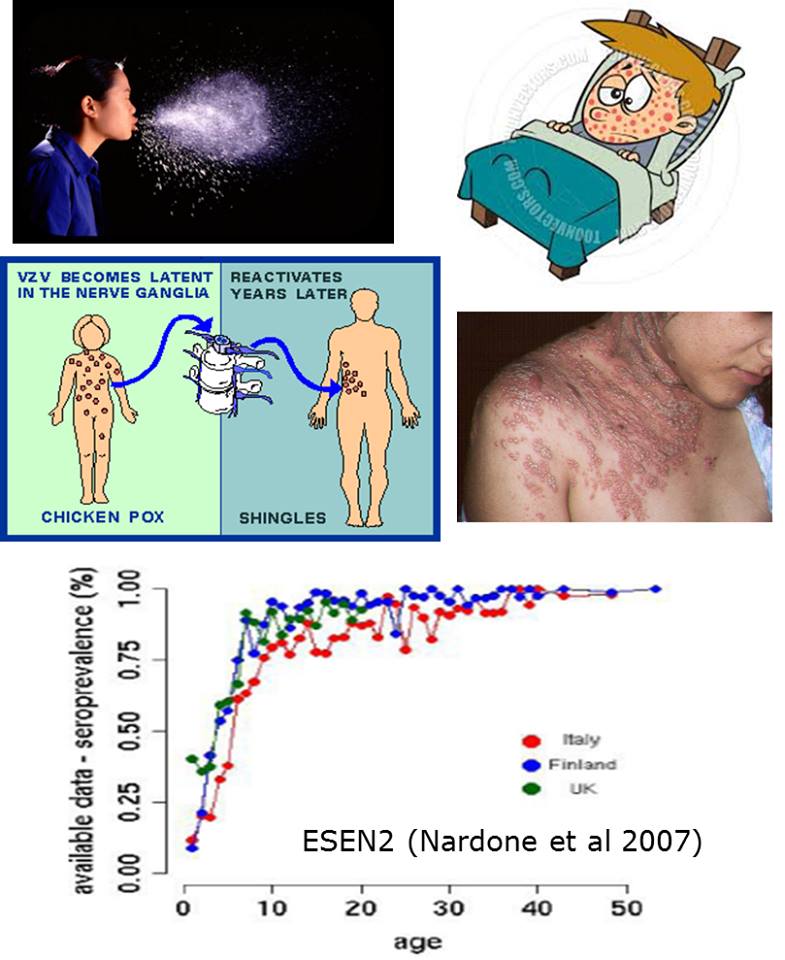Dipartimento di Matematica Guido Castelnuovo, Università Sapienza Roma
CANCELLATO

Abstract: Herpes zoster (HZ) is a painful disease caused by the reactivation of the varicella zoster virus(VZV) as cell mediated immunity (CMI) goes down (e.g. with ageing). Hope-Simpson formulated (1965) the “exogenous boosting” hypothesis (EBH), according to which further infective exposures to VZV may boost CMI, resulting in a protective effect against HZ. Inclusion of the exogenous boosting hypothesis in VZV transmission models predicts a large transient wave in natural HZ incidence following mass varicella immunization. The fear of this HZ “boom” is a main responsible of the current stall of varicella vaccination in Europe. In this talk, I summarize recent results from a model incorporating a further noteworthy Hope-Simpson’s hypothesis, stating that each VZV reexposure increases CMI protection against HZ to levels higher than those conferred by previous ones. The “progressive immunity” model fits well available European HZ data, suggesting that the mechanism may be critical in shaping HZ patterns. The model suggests counter-intuitive implications of varicella immunization in relation to vaccine-related HZ and the epidemiology of HZ after varicella elimination. I conclude by discussing the challenges for future VZV research.

